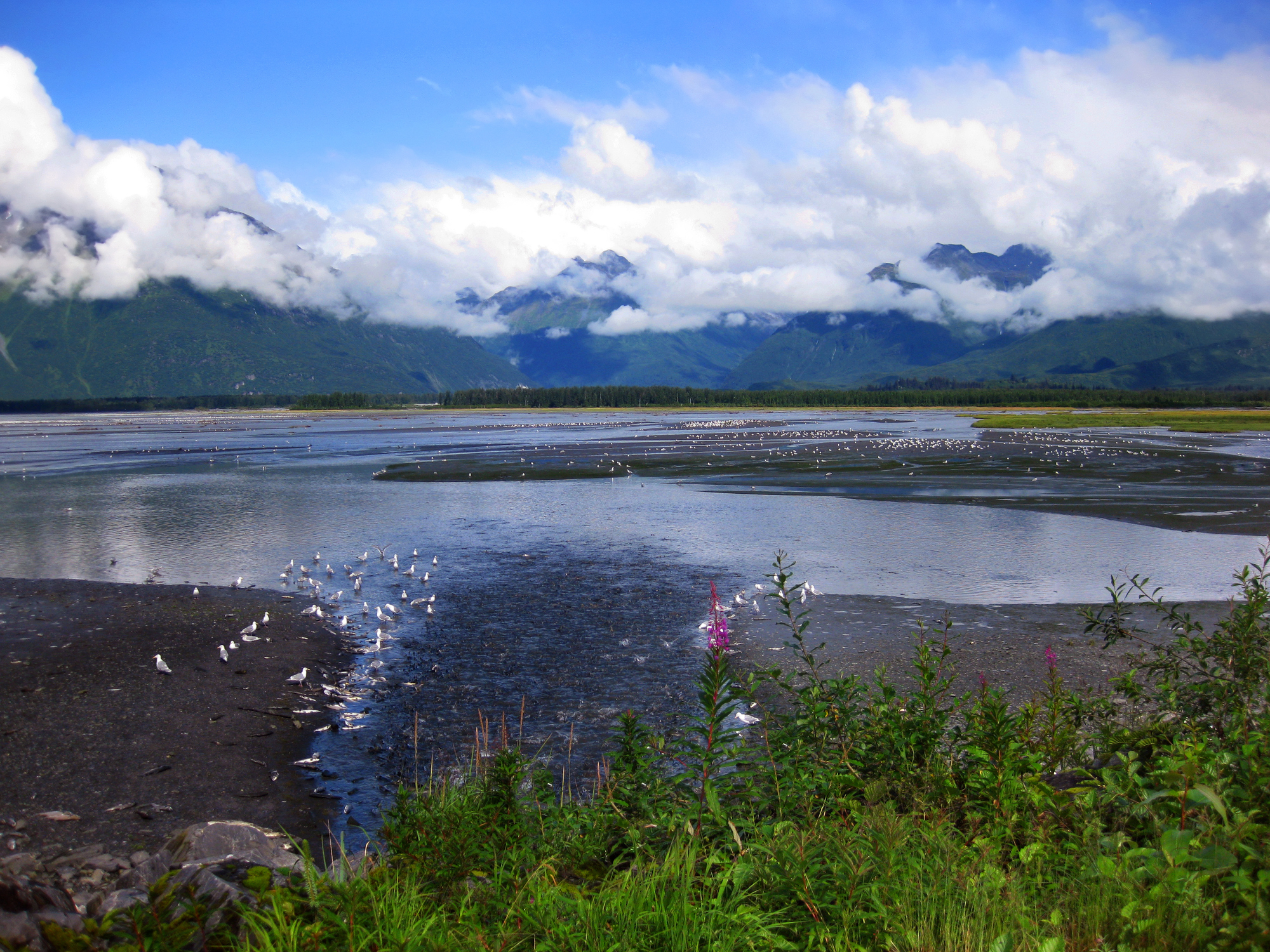Located in the Pacific Northwest, a national fish hatchery sustained significant damage to one of the hatchery’s two traveling water screens rendering it inoperable. With the one remaining screen not large enough to handle the amount of water needed to sustain the hatchery’s fish population, an immediate solution was needed to ensure the hatchery could operate at full capacity.

Challenge
After 40+ years of use, wear and tear eventually damaged one of the fish hatchery’s two traveling water screens beyond normal repair. Fortunately, this occurred during the summer months when the water levels along the river are low, however, the fish hatchery needed to rebuild its traveling water screens quickly before winter set in and the river’s water levels rise exponentially. Receiving upwards of 120 inches of rain per year, and 3 or more inches of rain per day for weeks on end beginning in October, it was essential to find a solution quickly.
With just two traveling water screens protecting the hatchery’s 6 pumps and pump house, these screens must perform at all times to ensure water is always reaching the pump. Without water, the hatchery’s fish simply would not survive. While the hatchery had a second traveling water screen, this equipment was the same age as the screen that had just failed and it likely would not withstand the 8,000 CFS flow, equivalent to a 100-year flood, that the river averages during winter season. Should the second screen fail, the hatchery would be crippled, risking catastrophic loss of its fish and no method to prevent large debris from causing extensive damage to equipment downstream.
According to the Hatchery Manager, “Screens are so important to our entire operation. Besides our backup generator and the pumps that distribute water to our fish, screens are the next most important piece of critical infrastructure that we cannot operate without.”
Solution
Already familiar with the quality of Evoqua’s traveling water screens, the team at the fish hatchery immediately contacted a sales representative and began discussions after the original screen failed. Within 3 weeks, a contract was awarded and initial plans for the onsite rebuild were in motion. Weeks later, the replacement parts and assemblies were delivered and the Evoqua team was onsite.
Several variables, including a pump house that required dewatering, called for precision and close collaboration between the hatchery staff and Evoqua during installation. the Evoqua team brought over 60-years of onsite Traveling Water Screen rebuilds to the project. Tapping into their expertise installing equipment across such a wide variety of sites, the Evoqua team successfully navigated a number of unexpected challenges, including plugging leaks in the pump house and reconfiguring the boom to gain clearance maneuvering through the pump house door.
“The Evoqua team was literally and figuratively in the trenches with us. At every hurdle, they identified a solution right there in the moment of need and was prepared with extra equipment and supplies to solve these unforeseen obstacles throughout the rebuild process.”
Evoqua’s Thru-Flow traveling water screens are the industry standard for raw water intake installations. These screens have been setting the standard for more than 100 years and ensure clean, debris-free raw water.
Results
The quality and reliability of the rebuilt traveling water screens has been a huge benefit for the fish hatchery. Automatic cleaning on screens has been a gamechanger for the hatchery as it has allowed staff to operate more efficiently. With a staff of just 6, and only 2 of those focused on equipment and maintenance, it’s critical for the hatchery’s screens to work seamlessly without any maintenance or concerns about them failing. “We now have the peace of mind that our screens are working properly—this allows us to spend all of our time and attention on protecting our fish.”
Aside from delivering high quality screens, the speed of rebuild was of utmost importance to the hatchery. Simply put, without Evoqua’s partnership to rebuild the hatchery’s damaged and aging screens, the fish hatchery would not be able to fulfill its mission of restoring populations depleted by environmental changes and overfishing.
“Having our screens rebuilt so quickly meant we could continue to operate and keep our fish alive. We cannot overstate how important this was. If our hatchery is not able to meet production goals, then we are not satisfying our responsibility to the community we serve which is the absolute foundation of what we do. We are so grateful Evoqua prioritized this project.”
